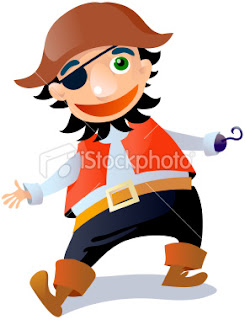Before i begin, let me qualify two things
1. I have no satisfactory solution to the problem.
2. I am not advocating piracy.
What I'm getting at is this - Pirating is just simpler and more efficient than purchasing books online every step of the way
To set the stage, my inventory of devices looks like this -
 |
| Dell 6400 / Windows 7 |
 |
| Kindle 4th Generation |
 |
| Nexus 7 / Android |
 |
| Lenovo T400 / Window7 |
 |
| Macbook Pro / Snow Leopard |
 |
| Micoromax Ninja / Android |
 |
| Xbox 360 |
 |
| iPad 1 |
Step 1: Discovery
For a pirated digital copy, I simply need to type in the name of the book + "torrent". That's it. I don't have to deal with any specific stores search like for
Amazon or
Flipkart. What's more, I get presented in one screen EVERYTHING for my search including format options, books, movies, and yes, even porn dedicated to the subject (see
rule 34 of the internet). I have a choice of formats depending upon my download appetite and gadget compatibility. For instance, if I also had a PS3 (urgh), I might want the Blue-ray version as well.
Step 2 : Download
It's no secret that the much-maligned
BitTorrent protocol is the most efficient way to download anything. The media companies, however, have managed to equate it with piracy - but that's the same as saying internal combustion technology cause war. Anyways, the BitTorrent protocol is so awesome because it harnesses the distributed power of the internet by using peer-to-peer connections to download files. it's resilient, fast and distributed - Holy grail, Batman!
Of course protocols are just that - an agreement of how to do stuff. The "stuff" needs to be done. And here comes in the client -
µTorrent - a very tiny BitTorrent client, the undisputed champion weighing in at just 1 MB. Yep - read that again - 1 MB. Many web pages these days amount to more than that simply to give us the update on the Kardashians (<-- My idea of SEO: dropping celebrity names)
And no - its not the download of a downloader; Another bit of chicanery that incenses me when i download a 2 MB installer which proceeds to download hundreds of additional megs for the target application, usually a ploy to install yet another toolbar on my browser[Deep breath ... 1 .... 2 .... 10]. I'm fine now.
The small download footprint is deceptive, because this is an incredible little full-featured application. Does what it says and does it very well. Running on my machine this is taking about 20 MB of ram, almost exactly as much as every individual tab on chrome.
Step 3: Formats
As i mentioned earlier, i now have a choice of formats and resolutions. In case of books I can have the pdf version for "Read Later" and "Instapaper". and the .mobi version for my kindle.In any case I can use a plethora of converters to format the pdf to whatever format I choose. If i buy a digital copy I'm locked to a fraction of the devices that i own.
Conclusion
So there we go - money didn't even figure in the equation. I would happily part with the cost of a coffee to acquire the brain juice of an intelligent person (umm.. book), but the current state of the eco-system does not incentivise me to do that.
The villians of the piece are the distribution agencies, and not necessarily the content producers. The distribution companies have the most to lose here. Authors have already started self-publishing via amazon to free up their content. I won't go on much about this because there is enough being discussed on this topic by people more knowledgeable than I. My focus was on the technology and usability flows of pirated content versus DRM protected content acquisition.
One short term, slightly hippy-ish solution, would be for the content producers to set up channels for people like me to make "donations" to assuage the piracy guilt but still use the best of breed technology to acquire content.
















0 comments:
Post a Comment